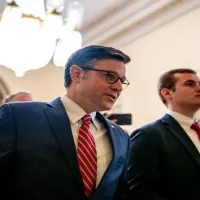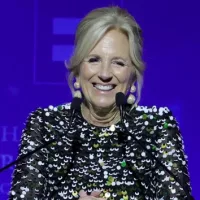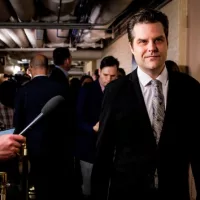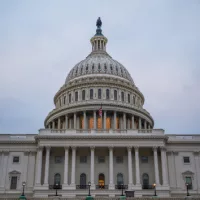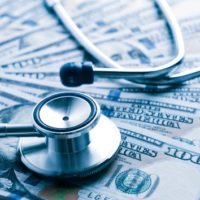
Valeriya/iStock(WASHINGTON) — The White House is considering a plan to cover America’s unpaid medical bills, possibly reimbursing hospitals with cash payouts, with some 28 million people uninsured in the United States.
President Donald Trump on Thursday described it as “cash payment” that would go to a “certain group of people.” Vice President Mike Pence said the proposal would likely tap some of the $100 billion that is already earmarked for hospitals to compensate them directly for treating uninsured Americans.
Pence said a final decision would be made Friday.
“So we’re going to work it out, so we’re going to try and get for that certain group of people a cash payment,” Trump said late Thursday.
Added Pence: “The president has made it very clear, we don’t want any American to worry about the cost of getting a test where the cost of getting treatment.”
The move comes as the coronavirus outbreak has jilted millions out of their jobs with a record 6.6 million new unemployment claims.
With the unprecedented job loss came worries by Americans that they would lose their health insurance when they need it most.
Trump said this week he would not re-open enrollment for the federally run health care exchanges, which allow Americans to purchase subsidized plans independent of their employer. Enrollment for 2020 coverage ended last December.
Americans are eligible for special enrollment, however, if they quit or get fired from their jobs.
They also could turn to state-run exchanges if they live in any of the dozen states that have re-opened enrollment because of coronavirus.
Jose Vera, a graphic designer in Wilton Manor, Florida, said paying his mortgage and finding health insurance were his top concerns after getting laid off as a result of the ongoing health crisis. He said his company had too many clients cancel orders and so they downsized.
Now, for the first time, he is trying to navigate the health insurance marketplaces, set up through the Affordable Care Act, that allows individuals to buy their own health insurance plans.
“I’m applying and just trying to get as much help as I can,” he told ABC News. “It’s a lot of uncertainty, and it’s very scary. This is the first time I’ve been going through something like this. I’ve always been very fortunate to have a job.”
The question though, is whether Americans like Vera will find a health insurance plan they can afford while paying other bills as part of the newly unemployed.
Also unclear is how people who opted not to buy health insurance, but make too much money to qualify for Medicaid, will fare in an era of pandemic flu.
These can often be families or young people looking to save a few dollars each month by not enrolling in “Obamacare” because they are healthy at the time.
The Obama-era law had required Americans to enroll in a health insurance plan in a bid to force cost sharing across a bigger pool of people. But a federal appeals court struck down that requirement after an aggressive challenge by Republican-led states, backed by the Trump administration.
The matter will be taken up by the Supreme Court later this year.
Larry Levitt, executive vice president for health policy at the Kaiser Family Foundation, said there are probably as many as 9 million Americans who are uninsured and don’t qualify for Medicaid. These Americans will have to see if they live in any of the 12 states that have re-opened enrollment on their health care exchanges, he said.
“These are people who have either chosen not to get insured or weren’t aware of their options. They might make a very different judgment today with the potential risk of serious illness from the coronavirus,” Levitt said.
In the end, Trump might have to lean on “Obamacare” as a solution to see the country through a pandemic flu, despite campaigning against the law and expected to argue to dismantle it in court.
“This will be the first economic downturn when the (Affordable Care Act) is in place as a safety net,” Levitt said. “As people are losing their jobs and losing their health care it could be an inopportune time to overturn the safety net.”
Copyright © 2020, ABC Audio. All rights reserved.






